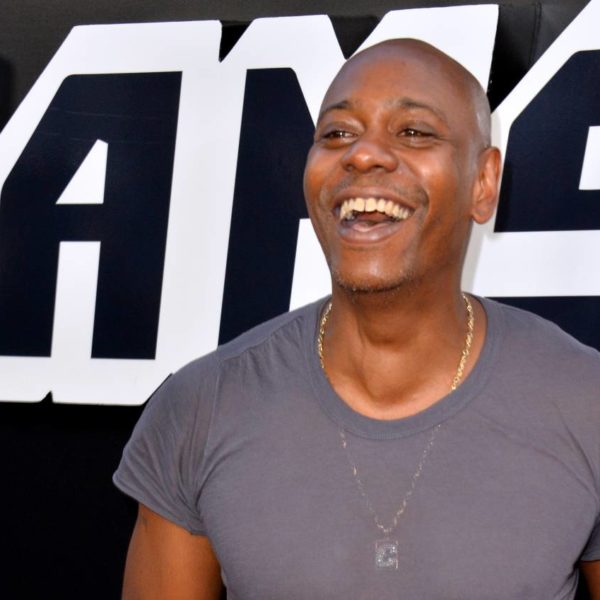HBO Made ‘Watchmen’ Free This Weekend, But it Was Still Terrible

In the middle of the ongoing protests sparked by the death of George Floyd and because Friday was Juneteenth, a celebration of the end of slavery in the United States following the Civil War, HBO decided to let fans watch the Watchmen TV series for free this weekend as “an extension of the network’s content offering highlighting Black experiences, voices, and storytellers.” Which is weird because it was written by a white guy and the central messages of the show are that fighting against your oppressors makes you just as bad as they are and not all cops are bad guys.
Critic Leslie Lee III has already covered how the series drops the ball on racism, the main thing that the series has been frustratingly praised for, and if you’re not following Leslie’s work you should be. What I want to talk about is how the series also fails as a sequel to Alan Moore and Dave Gibbons’ groundbreaking Watchmen comic by not really showing an understanding of the plot or characters of that book.
There are some things the show got right about the comic, and the clearest one is that Rorschach sending his journal to The New Frontiersman would not have actually exposed that Adrian Veidt faked the alien attack on New York. One of the least subtle real world references in Watchmen was The New Frontiersman, a far-right tabloid owned by The Newspaper Corporation. While Fox News didn’t exist and Americans may have missed the reference at the time, Rupert Murdoch had already founded News Corp, the entity that published his British right-wing tabloids years before Watchmen was published. Imagine Alex Jones citing the journal of a known mentally ill vigilante to claim 9-11 was an inside job and you’ll see why no one believes Squid day was faked. Good job on understanding one thing Alan Moore was trying to say, guys.
One of the themes of Watchmen is that superheroes are fascists. Now, in the real world, superheroes were mostly anti-fascist propaganda during WWII but had they actually been real, masked operatives who operate outside the law and without oversight they would invariably uphold white supremacy and when they didn’t, they’d be made illegal. There is a reason that a paper shown being read by Hitler was so enthusiastic about superheroes; Watchmen doesn’t have a Chekhov’s Gun that no one thought to fire.
The most blatant, smack you-in-the-face example of this is Hooded Justice, dressed very much like a stylized Klan member, the most violent vigilante of his day and also a literal Nazi named Rolf Müller. He was the first masked hero and he was there so you’d all realize that maybe all the other heroes were the fruit of a rotten tree. Also, The Comedian implies Müller is sexually aroused by the violence he’s allowed to dish out as Hooded Justice and that seems to resonate with Müller; this is paralleled with Nite Owl II, one of the story’s nominal good guys and heroes along with Silk Spectre II, who can’t get his dick hard enough to have sex until he puts his on Nite Owl costume and goes adventuring again.
In the TV show, however, Hooded Justice is a black man “reclaiming” the iconography of the Ku Klux Klan, who he’s secretly fighting against because they’ve infiltrated the police force he works for. I’ve seen so many critics say how brave and important it is that the first hero was a black man in this world but it overlooks that Hooded Justice was super racist, and not in a fake “racist against white people” way. He explicitly didn’t want to oppose the Nazis during WWII. The TV show’s retcon was awkwardly shoehorned in because he’s the only Minuteman with a somewhat ambiguous identity in the comic and Lindelof had just learned about the Tulsa Race Massacre and thought he could film it to parallel the destruction of Krypton by Brainiac.
I mentioned Nite Owl, and he and Silk Spectre are the closest things Watchmen has to a moral center, which makes it all the more shocking he is not in the show at all. This was done because Lindelof didn’t want to have too many characters from Watchmen in Watchmen because that’s what kind of show this is.
Silk Spectre does appear as a main character and oh boy. While the ending of Watchmen implied that Laurie had started to forgive her father for raping her mother, she was definitely not going to take his name. I have a sneaking suspicion that the actors just didn’t want to pronounce Juspeczyk but if she needed a name to hide her identity she was already going by Sandra Hollis at the end of the comic.
The scene of Laurie pulling out the huge, blue Doctor Manhattan sex toy became somewhat icon and shows Laurie being so obsessed with her ex that her husband made her a dildo to replicate her ex’s giant atomic penis and while she barely mentions Nite Owl she’s seen to be regularly calling for Manhattan on phones set up to reach him.
Doctor Manhattan was a nerdy scientist who received the powers of a god in an atomic accident and his newfound status as the man who lives outside of time and can rewrite reality leads him to leave the love of his life for an underage model being pushed into a lifestyle she doesn’t enjoy who is mostly drawn to him for his power and the fact that her mother hates him. You’re telling that at 70 years old that’s who Laurie considers the love of her life? And that Manhattan changes his mind about leaving the galaxy and instead gives up his godlike powers to be a househusband to a woman in her 30s after sending Adrian Veidt to the new world he built after losing faith in humanity?
Speaking of Veidt, everything that happens in Watchmen is part of his plan to end the Cold War and stop the nuclear destruction of Earth. Parallel to the story of Watchmen is the play within a play Marooned, a classic story from Tales of the Black Freighter, a fictional pirate comic conceived because Moore and Gibbons figured that if superheroes were real, pirate comics would have become the most popular genre. As if that could happen.
The story shows a man’s increasingly desperate attempt to return to his home before The Black Freighter, a ship of the damned he feared would kill his family and entire town if he can’t save them. When he finally makes it home he attacks his wife and it dawns on him that The Black Freighter wasn’t interested in Davidstown, but only wanted to add him to its crew after his corruption. In the denouement, Veidt asks Manhattan if he did the right thing, saying he has nightmares about swimming towards something hideous and is left without an answer.
Veidt believed he was right to kill half of New York City and that in doing so he saved the world, but it weighed on him. Despite being someone who would murder millions, he didn’t do so without the guilt of that action. He’s not the Joker, he’s a hero gone astray because he represents the utilitarian foil to Rorschach’s Steve Ditko-inspired objectivism. Watchmen is the trolley problem with super-heroes and Veidt chooses to pull the lever and change tracks but he desperately wants to know that he made the right choice to a famously unanswerable moral quandary.
Yet the TV show portrays Veidt as a heartless jackass whose entire arc is the result of him trying to cure his boredom after Dr. Manhattan sends him to the paradise he created on Europa because Veidt wanted to be worshipped for saving the world even though he couldn’t tell anyone. Of course, he also recorded a video of himself explaining why he did everything he did to President Robert Redford because the world’s smartest man was being written by idiots here. And Laurie arrests him in the end, letting the audience know he was the bad guy instead of having to contemplate if his actions were justified in the face of planetary annihilation.
Watchmen ultimately feels like an attempt to shoehorn a story into the framework of an existing property, like a bad fan fiction story trying to fit in new characters because you don’t understand the existing ones. And once you consider that the new story it’s trying to tell is the sort of examination of race that largely appeals to people who don’t get why Bradley Whitford telling a black man he’d have voted for Obama a third time in Get Out was a hint he was a creep, you’re left with a train wreck of a story that people tell you is important because they failed to understand the less-than-enlightened view the creators were trying to espouse.
The cinematography was pretty tight, though, gotta give them that.

